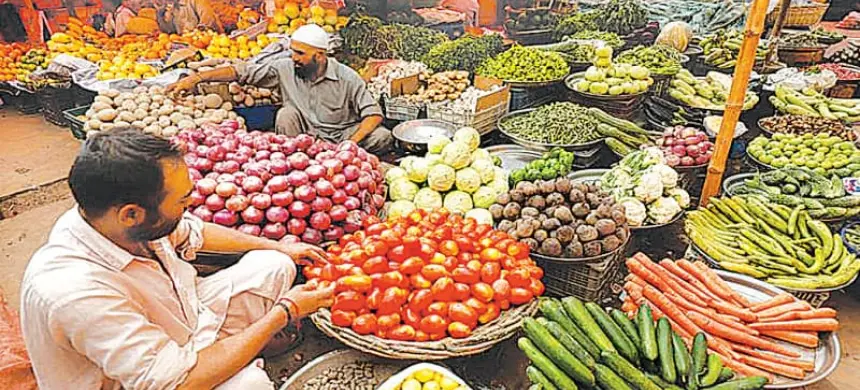The prices of vegetables and fruits have surged by up to 150% following widespread strikes by trader organizations and political sit-ins across the country. The situation has been exacerbated by recent road closures in Balochistan, particularly in Gwadar, where rallies have blocked roads for the past four days. These closures have led to significant disruptions in the transportation of goods, leaving vehicles carrying essential supplies stranded and causing prices in Quetta to spike sharply by Rs100 to Rs150 per kilogram.
Vegetables and fruits that were once relatively affordable are now being sold at exorbitant rates. For example, the price of okra (bhindi) has surged from Rs150 per kg to Rs400 in just a few days, while tomatoes have jumped from Rs80 per kg to Rs140. Similarly, the cost of pumpkin has risen from Rs120 to Rs200 per kg, peaches are now priced between Rs100 and Rs250 per kg, and apples have also seen a price increase of Rs100.
Read More: The price of gold in Pakistan continues to rise
In Punjab, despite the end of the strike by goods transporters, traders have continued to raise prices of food items arbitrarily, leading to accusations of exploitation. The largest grain market in south Punjab, among others, has reported a 20% increase in the prices of staples such as rice, pulses, and masalas. Shopkeepers have been accused of unfairly inflating prices, further straining citizens’ budgets.
The ongoing disruptions have not only led to the damage of perishable goods but have also worsened inflationary pressures. Citizens are expressing growing frustration over the rising cost of living and are calling on the government to intervene to stabilize food prices and address the supply chain issues. The combination of rising prices and damaged goods has intensified concerns about the impact of these disruptions on everyday life and economic stability.











